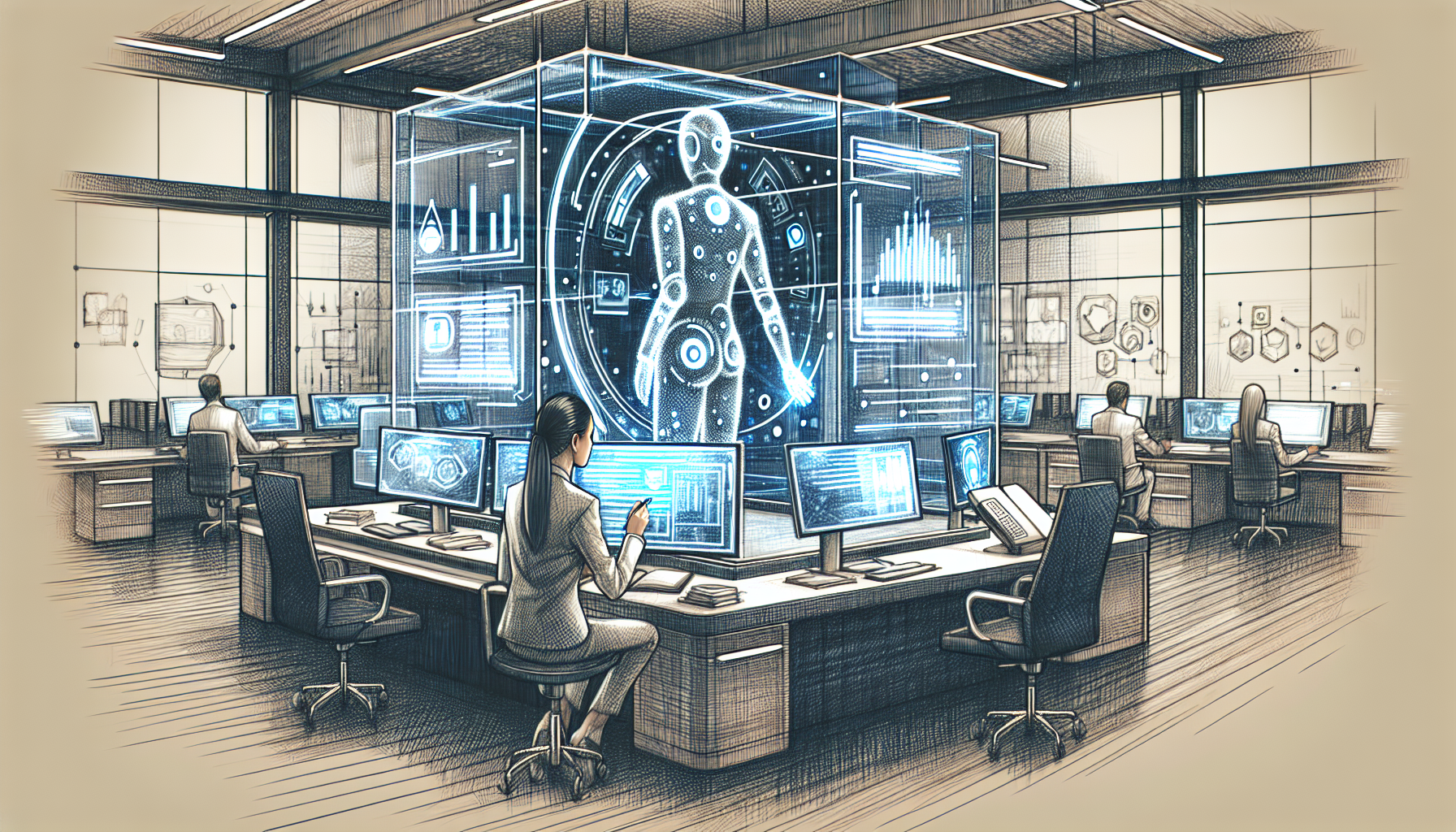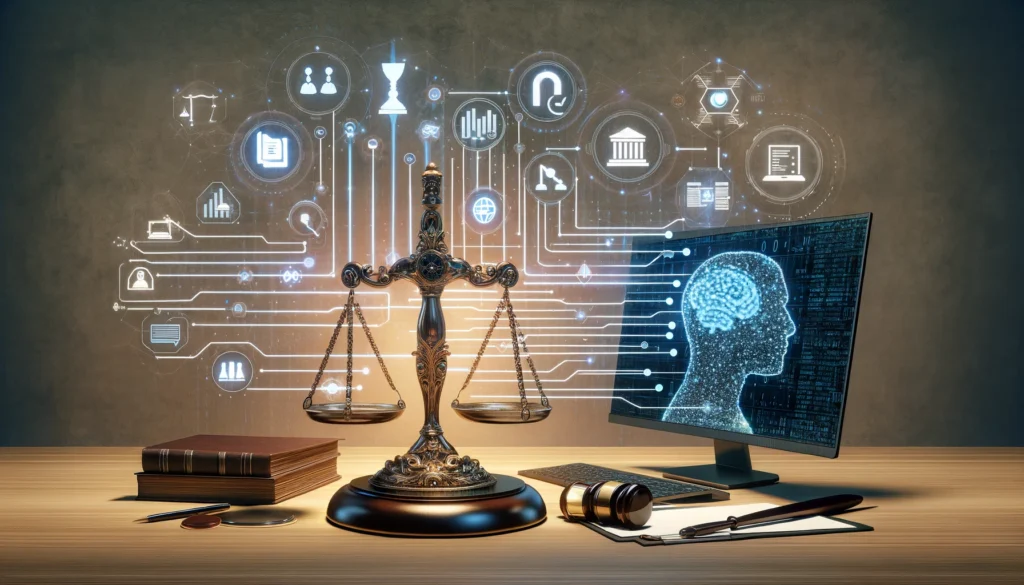
Revolutionizing Paralegal Productivity
The modern corporate paralegal sector is undergoing a dynamic transformation, with increasing reliance on technological innovations to enhance productivity. Paralegals today are not just administrative support, but integral to drafting, research, and compliance. Enter ChatGPT, an advanced AI language model, which has the potential to significantly augment the productivity and efficiency of these legal professionals.
AI tools like ChatGPT enable paralegals to draft complex corporate financing statements rapidly and accurately. This adoption is essential given the growing intricacies of corporate law and the mounting pressure to deliver precise documents within tight deadlines.
Understanding ChatGPT and Legal Language Models
ChatGPT, developed by OpenAI, is one of several large language models (LLMs) designed to understand and generate text based on vast datasets. These models can process millions of legal documents, statutes, and case laws to generate contextually accurate text.
Legal LLMs deploy mechanisms such as transformers and attention layers. These mechanisms dissect and generate legal text by discerning context, syntax, and semantics relevant to the task at hand. Given the highly specialized and nuanced nature of corporate financing documents, these models are invaluable in producing drafts that require minimal human intervention.
In corporate financing, precision and clarity are paramount. ChatGPT’s ability to parse complex legal terms and maintain coherence across lengthy documents makes it an asset. From promissory notes to security agreements, these AI tools ensure accuracy while significantly reducing drafting time.
Setting Up for Success: Initial Steps
Choosing an LLM demands careful consideration of a few key factors:
- Domain Specialization: Ensure the LLM has been trained on corporate and legal datasets to handle industry-specific terminology.
- Scalability: The model should handle high-volume document processing to keep up with demanding workloads.
- Security: Choose models that conform to data protection regulations to ensure confidentiality.
Initial configuration is straightforward but vital. Customize the model to suit your firm’s specific needs. Training sessions should focus on best practices for prompt creation and model utilization to ensure users can fully leverage ChatGPT’s capabilities.
Mastering the Basics: Essential Prompts
Crafting effective prompts is central to maximizing ChatGPT’s utility. Here are some basics:
- Standard Document Prompts:
- “Draft a basic promissory note between Party A and Party B.”
- “Generate a loan agreement with standard terms and conditions.”
- Handling Legal Jargon: Ensure the model correctly interprets complex terms by embedding definitions within the prompts. E.g., “Draft a security agreement, include a ‘pari passu’ clause (equal rank with other debts).”
- Framing Prompts for Precision: Be specific and contextual. For example, “Create a term sheet for Series A financing, including pre-money valuation and liquidation preferences.”
These fundamental prompts serve as a foundation, enabling paralegals to produce a variety of legal documents efficiently.
Advanced Techniques: Leveraging Nuance
For more sophisticated documentation, nuanced prompting techniques are essential:
- Extracting Complex Information: Detailed prompts elicit comprehensive outputs. E.g., “Draft a convertible note with specific terms for conversion at a discounted rate post-Series A funding.”
- Refining Outputs: Initial drafts from ChatGPT should be edited for detail and compliance. Use the assistant iteratively: “Refine the previous draft to include anti-dilution provisions and board approval clauses.”
- Workflow Integration: Embed LLM utilization fluidly into your processes. Generate initial drafts using ChatGPT and then employ human expertise for final reviews and compliance checks. This hybrid approach optimizes both speed and precision.
Advanced techniques refine the drafting process, ensuring the resulting documents withstand rigorous scrutiny.
Real-Time Edits and Feedback: Iterative Drafting
ChatGPT’s real-time capabilities are instrumental in making prompt adjustments:
- Quick Adjustments: “Amend the promissory note to change the repayment schedule to quarterly installments.” ChatGPT makes real-time edits, saving significant time.
- Collaboration: Leverage tools that support collaboration, enabling multiple users to interact with ChatGPT concurrently. This can streamline group edits and approval processes.
Seamless iterative drafting ensures documents are both current and precise.
Safeguarding Confidentiality and Compliance
Legal professionals must prioritize the security and confidentiality of sensitive information while using AI tools. Ensure compliance through:
- Data Management: Regularly vet LLM providers for compliance with data protection and privacy standards.
- Confidentiality Protocols: Implement robust protocols for handling privileged information within the firm and during the use of AI tools.
Maximizing Efficiency: Time-Saving Automation
ChatGPT can automate repetitive tasks, freeing up paralegals for higher-value activities:
- Task Automation: “Generate weekly status reports on pending loans and financing tasks.” ChatGPT can handle routine documentation efficiently.
- Task Management: Utilize ChatGPT for scheduling and reminders, ensuring that critical deadlines are met without manual oversight.
Automation not only enhances efficiency but also mitigates the risk of human error.
Preparing for the Future: Continuous Improvement
Staying abreast with the latest AI advancements is crucial for maintaining a competitive edge:
- AI Advancements: Regularly update and train your LLM on current datasets to enhance its efficacy.
- Professional Development: Invest in training programs and workshops to continually upgrade your team’s skill set in leveraging AI tools.
Conclusion: Embracing the AI-Enhanced Legal Workspace
As we usher in an era of AI-enhanced legal practices, the synergy between human expertise and technological innovation will define future success. Tools like ChatGPT not only bolster productivity but also redefine the scope of paralegal work.
Additional Resources and Tools
For further reading and exploration:


